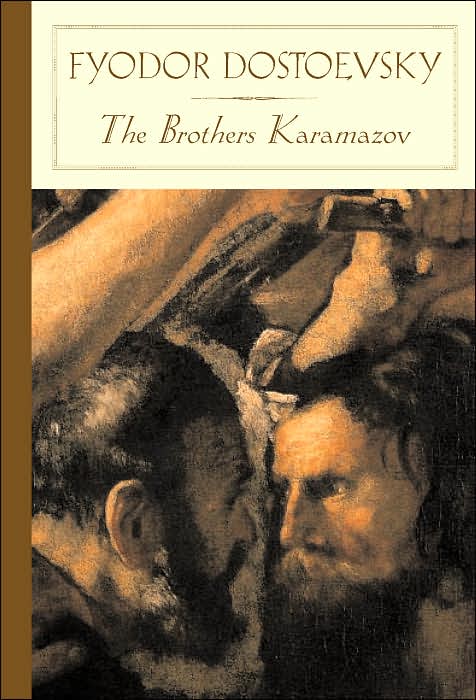
John 20:19-31
1John 1:1-2:2
Well, how was it? How was your Easter? Whether you celebrated the Lord’s resurrection here at Christ Church, or somewhere else with family or friends, I pray that your Easter Sunday was filled with joy and newness of life and an overwhelming sense of the power of God. My Easter weekend was one of the most memorable, yet. My parents came up to spend some time with us, so I got to see them for the first time since Christmas. I gathered with some of you at sunrise on Sunday morning to hear a spectacular sermon from Daniel Felts. Then I got to feast on Pat’s words during the later three services, somehow getting something different out of her message every time I heard it. I had communion 4 times, each time uniquely holy and distinct from the one before. I listened to the praise band lead us in singing at 8:30, and then saw Loren in a tie playing brass in the later two services. It was a high and holy day. Christ is risen! Christ is risen, indeed! Alleluia.
But the next thing I knew, I was waking up Monday morning with a holy hangover. The buzz and excitement from Easter was over and I was left with a resounding question ringing in my ears. So what? The best I could tell, I was still the same person as I was the day before. I didn’t float out of bed, but had to drag myself out. I skipped my morning prayers, didn’t feel like reading the Bible. Easter was great and all, and that’s great news that Christ is risen, but really, so what? Better yet, now what?
Well, if you are like me and have found yourself struggling with the so what, or perhaps more faithfully, the now what, of Easter, know that we are in good company today. St. John the Evangelist had a whole church of people asking now what? In fact, after reading our Epistle lesson for today, I would say that St. John himself struggled putting the “now what” of Easter into words.
We should know St. John pretty well by now, seeing that we have depended on him for most of our Gospel readings of late. We have given him center stage in our worship and listened to his account of the good news this year. But now, after Easter is over, our eloquent Gospel writer, who was never lacking for words in describing the life, death and resurrection of Christ, finds himself stammering through an attempt to coach his new Christian community through the “now what” in light of the resurrection of Christ. Our Epistle lesson for today comes from the book known as 1 John. 1 John is a letter written to the community that was formed as a result of St. John’s account of the Gospel. A whole church full of people have heard his message, and as a result, they have founded a community to live into the good news of Jesus Christ. These parishioners have listened to his words about Christ, have celebrated with as much vigor as possible the good news of the resurrection. But now, they find themselves with their own version of a holy hangover, wondering what to do now.
Since we have given St. John our ears thus far during the year, and have, in a way, become another community shaped by his message, we as the staff thought that it would be good to sit alongside his church during the Easter season. For the next 50 days, the Great 50 days of Easter, the lectionary appoints for the church to read the epistle of 1 John. So make a little room in the pew next to you for your new friends, our newest (and oldest) sister church, The Church of St. John’s Parishioners. Get to know your new friends, and feel free to ask the questions they are asking and to say the things they are saying. Okay, good news. Christ is risen. Christ is risen, indeed. Now what?
To answer that question, John takes us back to the beginning. We should know by now that John is infatuated with beginnings. He starts his Gospel by taking us back to the beginning of creation. “In the beginning was the Word,” John says. And for the rest of his Gospel, John tells us about being born again, starting over, and God’s new beginning for the world. He even ends his Gospel with a beginning, Jesus standing with his disciples, risen, started fresh, and calling them to follow him all over again. For John, it’s all about beginnings.
So it should come as no surprise that 1 John starts at the beginning. “We declare to you what was from the beginning,” the writer says. And then, for the rest of the first chapter, he tells us about sin and death, light and darkness, confession and forgiveness. Frankly, I’m a little bit bored with this stuff. I mean, we just left Lent to get to Easter, and I’m ready to find out what’s next, not what we just went through! But now, thanks to John and his relentless infatuation with beginnings, we are thrust right back to the basics, to the beginnings of the faith.
But maybe I’m not as ready as I think I am. After all, I woke up on Easter Monday and had the same struggles as I did on Holy Saturday. Christ is risen, but I’m not all that sure that I have been fully risen, yet. Maybe I need to begin again. Maybe we all do.
The good news of Easter, according to John, is that it teaches us how to begin again. The “now what” for John is inextricably tied into the beginning. We never fully move on from Easter, from the resurrection. Instead, we are called to live into that cycle daily of starting over. The prayers of the church reflect this. The church begins its morning prayers with the words, “New every morning is your love, Great God of light.” Each day, a new beginning. And every evening the church bids us pray, “forgive all my offenses and grant that I might again be raised to newness of life.” Each evening, a chance to die to self in the hope of resurrection. The “now what” of Easter, for John, is for us to begin again, every day for the rest of our lives. We don’t go through Lent, Holy Week and Easter to check them off the list and then move on. We go through them to learn how to live, to learn how to start over. That is what is in our Gospel account, Jesus relentlessly coming back to Thomas, offering him a chance to start again. God is relentlessly graceful, offering us a chance to begin again every day for the rest of our lives. Truth is, it will take us that long to get it right.
One of my professors in seminary tells the story of a student he met. He writes, “I met him his sophomore year, when he arrived at Duke as a transfer student. He was in the Chapel on most Sundays. One day in the fall, I took him home with me for a sandwich. As we sat there eating, he said, “I want to tell you something about me so you can know me a little better.”
OK.
“Well, first I was a teenager from hell. I made my folks’ lives miserable,” he said.
I said that was a not too original story around here.
He continued, “They had me committed to a mental institution when I was sixteen. But I escaped from there, made my way to Chicago, worked as a prostitute on the streets. Got into lots of stuff. One night I rolled this guy, took his wallet and used his American Express card to buy some stuff.”
“Wow,” I said. “I thought you meant that you got a speeding ticket in high school.”
“I told you I was bad,” he said. “Anyway, cops got me. I was sent to Joliet prison. That was like entering the depths of hell. This older prisoner took me under his wing to protect me. Every night, before lock down, he would read a chapter out of the Bible to me, out of the gospel of Luke. He wasn’t too good a reader, so it would take him forever, stumbling over the words and stuff. Well, one night he was reading Luke, about the middle, the stories about the lost sheep, and the prodigal son, and all, and it was like this hand just reached in that cell, grabbed me by the throat, shook me up and down and said, ‘I’ve got plans for you!’ Well, I got saved. I got out of that prison in a few months, finished my high school degree, and I’m here on a full scholarship. Sure, I often want to go back to my old ways of life, but the way I see it, when I converted in that jail cell, it was the first time of many. So, I’m still converting everyday.”
“Wow,” I said. “We don’t hear stories like that around here too often.”
“Well,” he continued, “the reason I’m telling you this is that you’re a preacher, right? And I know you guys are always grubbing around for stories, illustrations and stuff. And you got Easter coming up in a few weeks. Well, I am your proof of Easter.”






